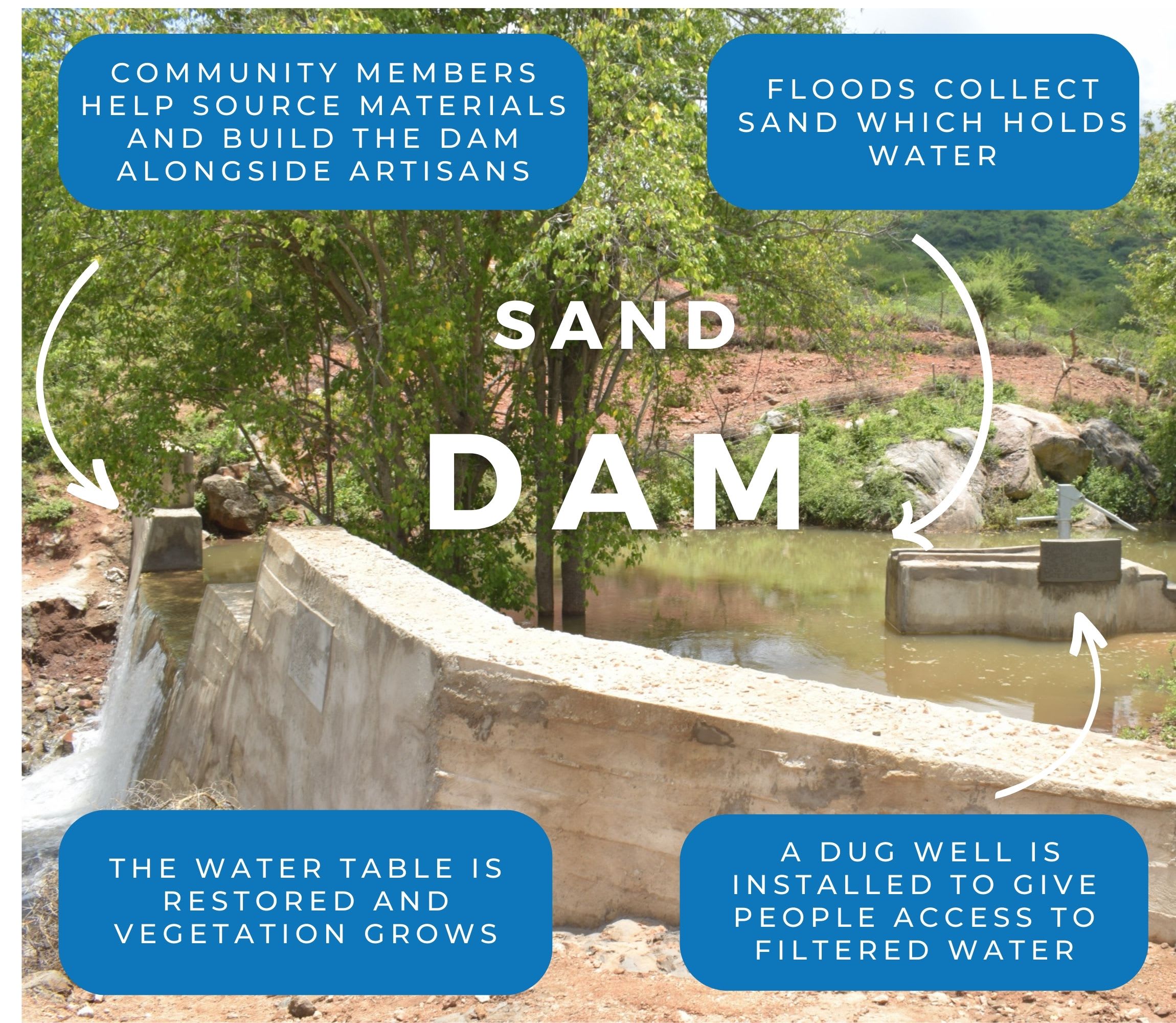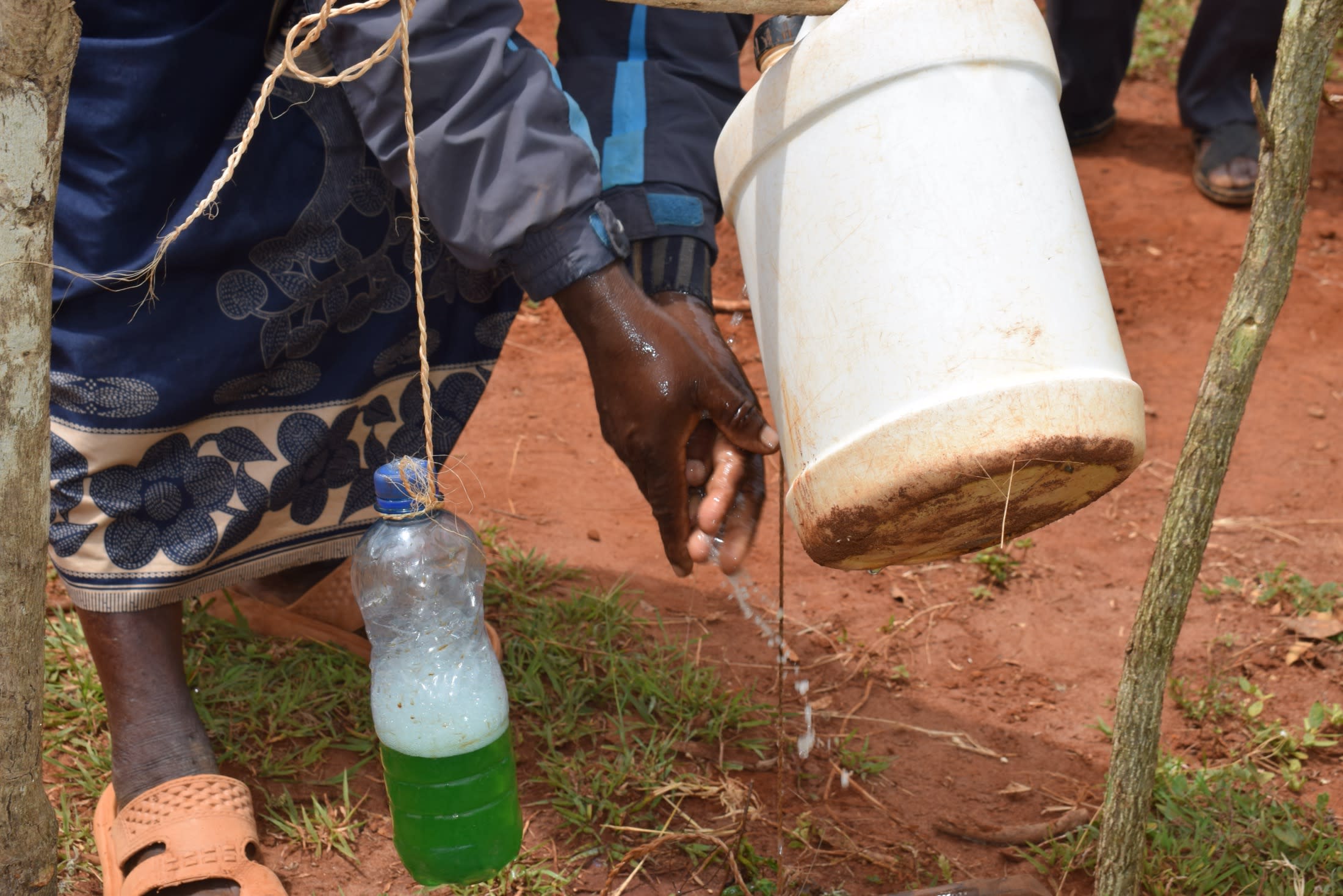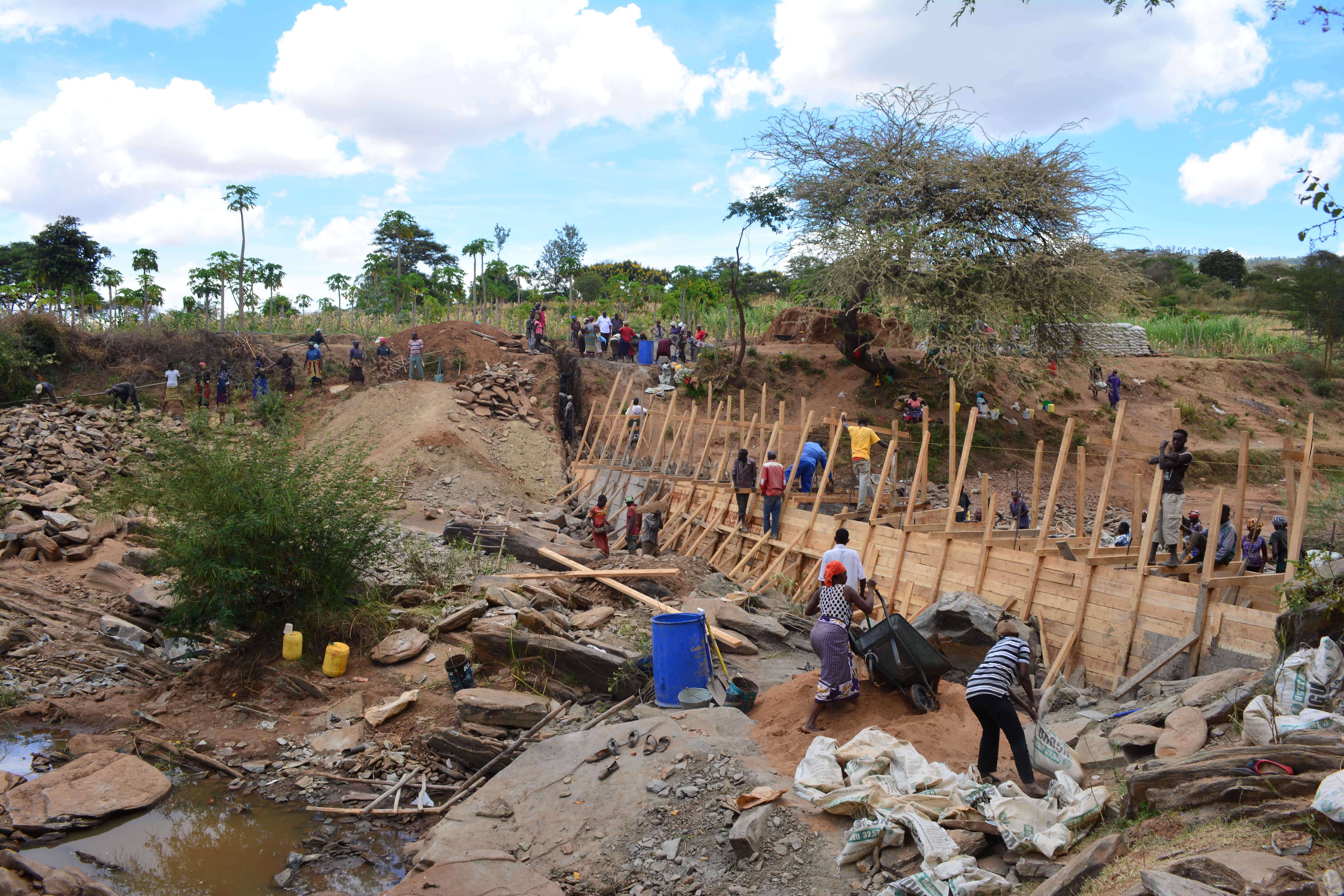This project is a part of our shared program with Africa Sand Dam Foundation. Our team is pleased to directly share the below report (edited for clarity, as needed).
Welcome to the Community
The Mbuuni Self-Help Group is located in Mbuuni Village, Kaani sub-location, Iveti location, Kathiani Sub-County of Machakos County. The household size of the self-help group has an average of five members while the average age of the group is 45. Mbuuni Village itself has a total population of 254.
36% of the members said that their main source of income is casual labor, which is mostly available during the planting and harvesting seasons. Another 27% depends on farming as their sole source of income. 27% of the group members said that they rely on a salary at the end of the month, 7% of the members operate small businesses which act as their main source of daily income while a small percent (2%) rely on other sources. 1% of the whole group relies on livestock sales for income.
Water Situation
The Machakos government drilled a borehole in this region, which has become the safe, go-to source for the surrounding population of a huge circumference. Though many living in Mbuuni Village are drinking clean water from this borehole, they are doing so at an extremely high cost:
- 21% of members travel over 1 km to this source
- The majority line up at the borehole waiting for water for more than 2 hours
- 27% wait for about 1 hour
Couple the travel time and the wait time together, and a majority of the day is spent focused on water access.
Thus, a majority of community members walk to the nearby riverbed where they dig scoop holes for water. Though many mothers boil water before serving it to their families, waterborne disease is still a common consequence of drinking scoop hole water. These open holes in the riverbed are subject to contamination from all directions!
When delivered home, water is poured into larger plastic storage containers.
Sanitation Situation
Sanitation and hygiene is not the predominant issue in Mbuuni Village, it is water access. People are doing their best to keep their compounds clean with the little water they have. 100% of homes have their own latrine, and those we observed were in fairly good condition. Everyone also has a dedicated facility for practicing personal hygiene.
A majority of families are also utilizing helpful tools like dish racks and clotheslines to safely dry their belongings up off the ground. However, there were only a few hand-washing stations observed.
Plans: Hygiene and Sanitation Training
To address gaps in hygiene and sanitation practices in Mbuuni Community, training will be offered to self-help group members on two consecutive days. The members will learn about useful practices and tools to improve health, and then will be able to share those with their families and neighbors. Water transport, storage, and treatment methods will be taught, and hand-washing will be a focus. Group members will learn how to make their own hand-washing stations with everyday materials.
Plans: Sand Dam
This sand dam will be one of many construction projects to come in the next few years. We will spend a total of five years unified with this community to address the water shortage. More sand dams will be built to transform the environment. As the sand dam matures and builds up more sand, the water table will rise. Along with these sand dams, hand-dug wells will be installed to give locals a good, safe way to access that water.
This particular sand dam is projected to be 55.2 meters long and 5.6 meters high. The group members first pointed out their preferred locations for the sand dam, and then our technical team followed up to ensure the viability of construction.
As the sand dam construction begins, community members will start excavating the first adjacent hand-dug well (click here to see that well project).

 Sand Dam
Sand Dam
 Rehabilitation Project
Rehabilitation Project






























